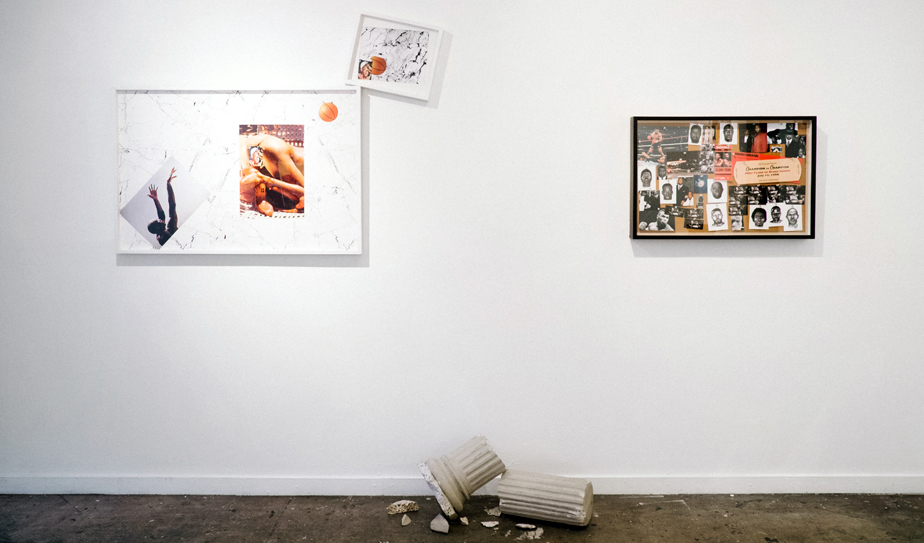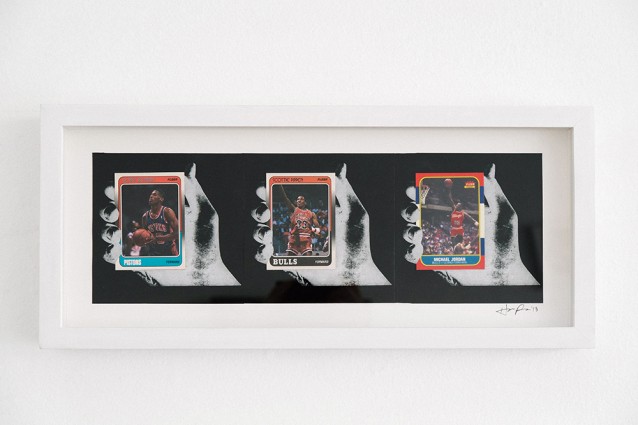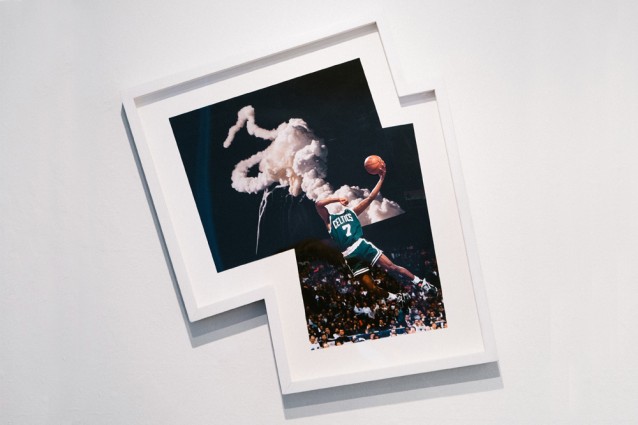
The Air Above This Ground
Hassan Rahim
The artist is best characterized by a description of one of his works: Don King’s face looms large, fixed in an impish smirk across from a then-naïve-but-very-dangerous Mike Tyson. Between them is a Lamborghini Countach. A marble backdrop could be a galaxy or an ocean. This particular piece is both exceptional and typical of Rahim’s work. His usual themes—competition, excellence, and the decadence that come with them are all present, but in this work you also find a keen intuition of the antagonism that pervades the lives of the icons in play in the collage. The curious detail here is that there is a fight going on, not between fighters but rather the real fight: between fighter and promoter.
Rahim’s knack is to contextualize culture in this way. In the artist’s world about seven percent of Michael Jordan’s significance was on-court. Here he is treated as an event; as the kind of icon that changes the way we do icons in the first place. Throughout the work there is a similar dialogue. Rahim interrogates ‘the icon’ and ‘nostalgia’ as phenomena. The investigation is very much alive, never slips into academic moralizing. Here riches and competitive dominance are flattered, but their respective uglier sides are also sorely present. When contemplating any of these collages one has the impression of a child at a dinner party attended by sports luminaries who has just heard a dirty joke: you can’t quite put your finger on the vulgarity, but you know that something has happened.
Conversant with pre-existing works–Rahim’s “The Big Three” owes as much to Wallace Berman’s “Untitled” (hand holding a cassette) as it does to Michael Jordan, Dennis Rodman, and Scottie Pippen—his pieces build a bridge from art-historical zones to realms of culture that are usually entirely claimed by advertising. There is a reclamation of imagery happening, the sports Hero comes back home to art. One is reminded of classical sculptures of discuss throwers, or of the fact that Nike was originally the Greek Goddess of Victory.
Hassan Rahims works are not terse. They are simple, and deep. Members of his generation will undoubtedly recognize his voice as their own.
Text by James Jolliff.





